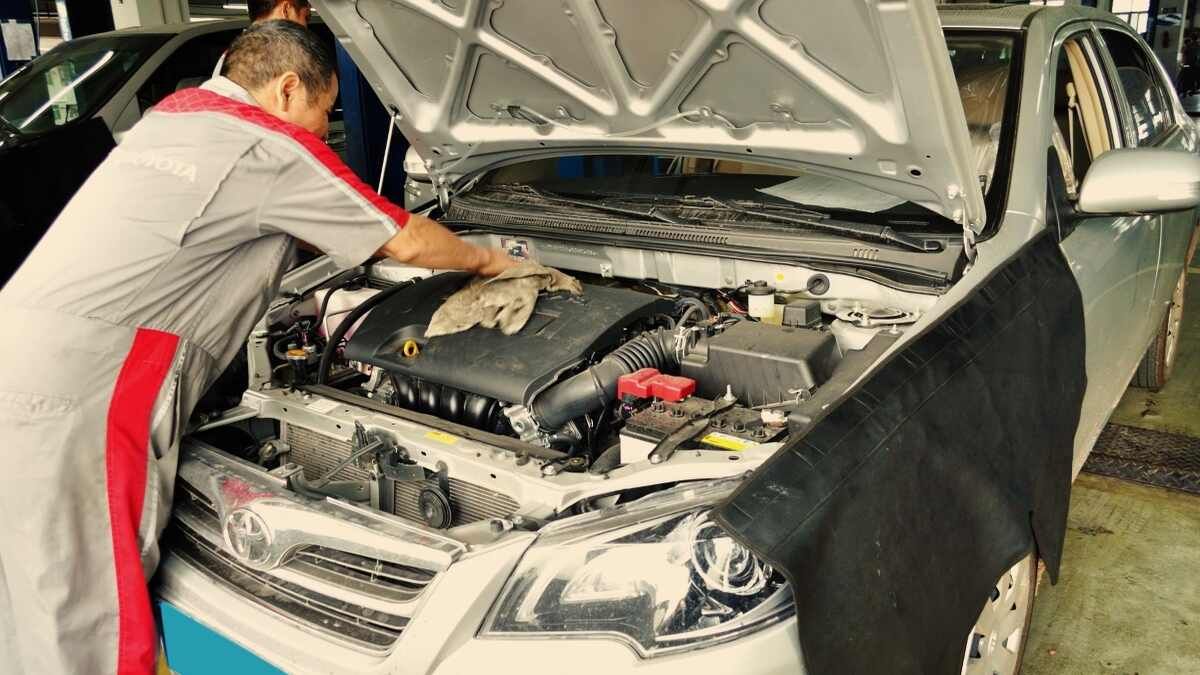When it comes to reliability, it is the one factor that many car shoppers look for most of all. More so than fuel efficiency, comfort, styling, and even safety.
And why is that?
Because it comes down to money and the personal assessment of what each of us believes is the likelihood about which of the aforementioned factors will apply to us and affect us most deeply. An unreliable car can trump efficiency, comfort, styling and yes…even safety when an unreliable car breaks down, resulting in additional car-related costs and potential hospital bills.
Is buying a Toyota Hybrid in 2024 a Better Buy than a Non-hybrid Toyota?
Hybrids are a hot topic of car buying decisions, However not all forecasted trends of EV-related vehicles are positive.
Here are some good and not-so-good points to consider:
Fuel Efficiency: Hybrids typically offer better fuel efficiency than their non-hybrid counterparts, especially in city driving conditions where hybrid technology shines due to regenerative braking and electric motor assistance. If you do a lot of city driving, a hybrid might save you more money on fuel in the long run. The bigger question, however, is how long will it take to actually before the vehicle earns its owner-expected keep as a hybrid?
Environmental Impact: Hybrids generally have lower carbon emissions compared to traditional gasoline vehicles. If reducing your carbon footprint is a priority, a hybrid might align better with your values. However, “Green Washing” marketing is often misleading; There’s more to a carbon footprint than the emissions of a single vehicle you may own.
Initial Cost: Hybrids often come with a higher initial purchase price compared to non-hybrid models. This cost difference might be offset over time by savings on fuel and potential tax incentives for hybrid vehicles, but not always. Especially when you discover your state has added an extra tax onto that gas-saving vehicle and your driving needs are more road trip style than inner city commuting.
Resale Value: Hybrid cars tend to have better resale value compared to non-hybrids, partly due to their reputation for fuel efficiency and environmental friendliness. However this is no guarantee as this trend could change rapidly due to news stories and fickle car shoppers.
Maintenance: Hybrids typically have fewer maintenance requirements for certain components like brakes, thanks to regenerative braking. However, they may have more complex systems that could potentially require specialized servicing. There is a shortage of newer generations of mechanics trained in EV-related vehicle repairs and proper servicing.
Driving Experience: Some drivers prefer the driving experience of hybrids due to their smooth and quiet operation when running on electric power. Others may prefer the more traditional feel of a non-hybrid vehicle.
In short, hybrid vehicles―even Toyota models―are not perfectly reliable (but closer to it than most makes) and so the decision between buying a hybrid or non-hybrid Toyota in 2024 depends on various factors such as your personal driving needs, habits, budget, environmental concerns, and the specific models you may be considering.
That said, here is a timely Car Care Nut YouTube channel episode in which the host discusses whether you should buy a Toyota Hybrid in 2024 or stick with a gasoline-only model for now.
In the video you will discover:
- There are 3 kinds of Toyota hybrids available in 2024.
- How two electric motors and the e-CVT transmission in a hybrid assist the gasoline part of the engine.
- The pluses and minuses of an e-CVT setup in a hybrid.
- How one-motor hybrid trucks differ from their sister hybrid sedans and why.
- Which hybrids are more reliable―the sedan or the truck?
- Who should and should not buy a hybrid.
- What are the only two real considerations you should have toward choosing a hybrid?
- Which is the most reliable between the hybrid and non-hybrid models?
Please Note: If you just want to get to the answer to the Toyota go-hybrid or don’t-go-hybrid question, immediately below the video is a summary of what this Toyota expert says is an important deal-breaking difference between the two vehicle types today.
Otherwise, watch the first 11 minutes and 7 seconds of the video to learn the additional details of why this Toyota expert believes he has the correct answer to the question.
Should You Buy a Toyota Hybrid in 2024?
Which is the More Reliable―Hybrid or Non-hybrid?
According to the host of the Car Care Nut YouTube channel the reliability relationship between hybrid and gasoline-only Toyota vehicles has flipped. Whereas traditionally the gasoline models were proven to be the more reliable of the two, today it is the hybrid for the following reasons:
1. Improved hybrid battery tech and installation in hybrids.
2. Improved fan powered air-cooling filters and easier access to keep hybrid batteries longer lasting.
3. Non-hybrid models are almost all turbocharged with all of the inherent problems of using turbos in cars and trucks.
“Without a question of a doubt, hybrids have actually started to edge over gasoline cars, and they have surpassed them over reliability,” states the host.
For more Hybrid-related car articles, here are three useful ones with car shopping advice for consumers:
- 7 Hybrids That Save the Most Money on Gas and Those That Don't
- Consumer Reports Best Hybrid SUVs That Cost $35,000 to $45,000
- Best Hybrid Cars Under $35,000 Consumer Reports Update for the New Year
Timothy Boyer is an automotive reporter based in Cincinnati. Experienced with early car restorations, he regularly restores older vehicles with engine modifications for improved performance. Follow Tim on “Zen and the Art of DIY Car Repair” website, the Zen Mechanic blog and on Twitter at @TimBoyerWrites and Facebook for daily news and topics related to new and used cars and trucks.
COMING UP NEXT: Best Windshield Rain Repellent for Your Car
Image source: Deposit Photos





